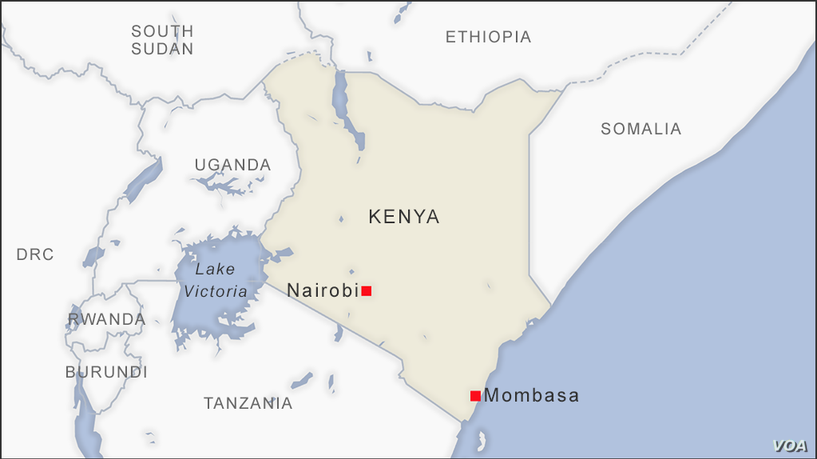Kenya: Skin Deep Surrogacy Row Puts Kenya’s Medical Board On Trial

Nairobi – On the top floor of an unremarkable office block along Nairobi’s Lenana Road, a long mahogany table dominates a hushed boardroom. This is where the Kenya Medical Practitioners and Dentists Council (KMPDC) convenes when doctors are accused of crossing professional lines. The atmosphere is clinical: no flashing cameras, no political speeches, only files stacked neatly in manila folders. Here, the fate of Dr Sarita Sukhija, director of the Myra Clinic, will be decided.
Her case is unlike most that come before the board. Earlier last month, an Indian-Kenyan couple lodged a complaint against her clinic following the birth of their surrogate child. Their grievance was unsettling in its nature: the baby’s skin was “too dark.”
Disappointment soon turned into suspicion, and suspicion into a criminal allegation although the High Court dismissed the case in September. Instead of facing a prison dock, she must now answer to her professional peers.
The women carrying the burden of Kenya’s rural healthcare on their backs
What the board does
The medical board is Kenya’s watchdog for doctors. It holds the authority to summon witnesses, demand contracts, and cross-examine practitioners.
Unlike the courts, which pursue punishment, its mandate is professional accountability: to determine whether a doctor upheld the ethics of medicine.
Dr Michael Karanja, a retired board member, explains: “When such a case is before us, we are not deciding guilt or innocence in the criminal sense. We are asking: did the doctor act in the best interests of the patient? Did they protect vulnerable parties? Did they maintain the dignity of all concerned?”
The board’s questions for Dr Sukhija are likely to be blunt: Why did she refuse to provide the police with the surrogacy agreement?
Were the intended parents adequately counselled about the risks, including the possibility of physical differences in the child? Did the clinic ensure that the surrogate’s rights were fully safeguarded?
‘Hope is all I have’: the refugees searching for family from Kenya’s Kakuma camp
A grey area in black and white
Kenya’s legal vacuum on surrogacy means the board is often the last line of accountability. Parliament has yet to pass the Assisted Reproductive Technology Bill, leaving clinics to operate under private agreements.
“The board is not designed to regulate entire industries. Yet in the absence of law, it is being asked to decide questions of parenthood, contracts and even race. That is far too much to expect of a medical tribunal,” said health law specialist Linda Musyoka
Without legislation, the board’s rulings carry considerable weight. It can suspend licences, impose fines, or require clinics to alter their procedures. For parents and surrogates alike, its decisions set informal precedents, shaping how fertility clinics across the country operate.
The human stakes
The matter is not simply a legal or procedural debate. At its core is a newborn child, only weeks old, caught between accusation and defence.
University of Nairobi sociologist Professor Anne Wanjiku warns:
“The medical board will speak in terms of ethics and protocol. But wider society must recognise the humanity. A baby is being used as evidence in a dispute over skin colour. That is a sobering reminder of how bias can seep into even the miracle of life.”
Surrogate mothers are watching closely. Many fear being left vulnerable when agreements collapse. Grace N., a former surrogate from Kiambu, voices her concern.
“If the board is serious, it must examine not only the conduct of the clinic but also the well-being of the surrogate. We give our bodies to help families, but we must have confidence that our dignity will be upheld,” she said.
Fake doctors run Kenya’s unregulated hospitals
A system on trial
When the board convenes, its hearings will not be open to the public. Witnesses will be called one by one, contracts examined, and ethical standards measured against practice.
Dr Sukhija will fight to protect her professional reputation; the intended parents may testify; the surrogate may also be asked to recount her experience.
Whatever ruling emerges will resonate beyond the boardroom. If Dr Sukhija is cleared, clinics may feel emboldened to continue operating in the legal grey. If she is censured, Parliament could be pushed to accelerate long-delayed legislation.
Dr Karanja is blunt in his assessment: “This case is not about one doctor. It is about whether Kenya can manage reproductive technology responsibly. If the board treats it as a routine disciplinary hearing, we will miss the bigger picture.”
The way forward
Outside the Nairobi headquarters, traffic hums along as files await review. Somewhere in the city, a new mother cradles an infant whose first weeks have already been overshadowed by controversy.
The board’s decision cannot erase the cultural anxieties about race and identity that this case has exposed. But it can set a tone: that medicine in Kenya must be guided by respect, transparency, and accountability.
Kenya now faces a choice. Will surrogacy continue to be governed by whispers, private deals, and courtroom battles? Or will it finally fall under clear laws that protect parents, surrogates, and, above all, children?
For the baby at the centre of this storm, the outcome will decide whether his story becomes a cautionary tale, or the catalyst that finally brings clarity to one of medicine’s most delicate frontiers.
By RFI website.



